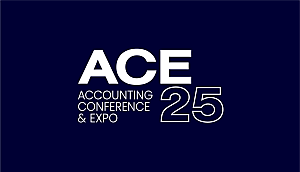You’re out of free articles for this month
Sitting on Xero and CPA Australia’s advisory committees, she talked of the “struggle” businesses and member organisations faced in getting people into the industry.
“People have taken their eye off accounting, and focus has gone off into data and finance instead,” she said.
The numbers back up her observations. The ABS forecast that Australia would require 338,362 accountants by 2026 – almost 10,000 extra a year.
A study by recruitment firm People2people found almost half (46 per cent) of accounting teams needed personnel with 6 per cent “significantly short-staffed”.
This dearth was only made worse by reports of those in the profession also wanting out, citing issues like work pressures and inflexible hours.
People2people found that talent retention was the primary challenge for 46 per cent of accounting leaders while cloud accounting platform Dext said over a third of accountants it surveyed were considering a career change in the next five years.
Indeed, the past year saw the industry confront uncomfortable truths about the profession's declining appeal. Xero Australia manager Will Buckley theorised that stereotypes painting accountants as boring "numbers people” were partly to blame.
In an introspective speech during Xerocon in August, Mr Buckley said the poor image of the profession stunted its growth and made it difficult to attract entrants, with students less likely to view an accounting career favourably.
To combat misconceptions, he suggested that accountants find a “meaningful purpose” in their work and educate others about the value of the profession.
He called accountants “financial storytellers” and “relationship builders”, and said, “When people see that you’re about more than just the numbers, they will be more inclined to join you”.
CA ANZ instead took aim at accounting fees for students. In a submission to Parliament in September, it said the low pay received by graduates in starting roles relative to the discipline’s high course fees proved a “deterrent” for enrolments.
“Accounting, audit and finance professionals in Australia are currently in shortage and, in the absence of change, shortages will persist and grow into the future,” it said.
CPA Australia found that in the decade leading up to 2020, accounting firms took in 19 per cent fewer graduates. At the same time, students opting for banking and finance had risen 23 per cent. The body said the number of students completing bachelor-level and above programs in accounting had almost halved in the decade to 2020 to just 2,278 a year.
The advocacy of the nation’s top two accounting bodies would also culminate in a joint submission that lobbied the government to scrap the annual cap on skilled migrant workers “to address continued workforce shortages and skills needs that cannot be met by the domestic talent pool”.
“We are experiencing a shortage of accountants in Australia and employers can benefit greatly from the experience of new migrants, even if they require a little more time to adapt to the Australian market,” CPA Australia senior manager Gavan Ord told Accountants Daily.
However, the government’s Working Future employment white paper released in September exposed a concerning revelation: 80 per cent of skilled accounting migrants failed to find work within their chosen profession.
The paper attributed the disparities in migrants’ employment outcomes to discrimination and unconscious bias faced by migrants from employers, as well as regulatory hurdles including requirements for top-up qualifications and domestic recruitment processes.
Canberra followed up the white paper with a 10-year migration strategy in December, which committed to fixing a “broken” system by overhauling skilled migration pathways.
This included the introduction of a four-year Skills in Demand visa that offered three paths to entry with “settings that encourage migrant worker mobility in the labour market”.
Skilled migrants targeted would be based on a Jobs and Skills Australia Skills Priority List. While the list recognised no shortfall of management accountants and a shortage of general accountants only in the Northern Territory, taxation accountants and auditors would be prioritised.
Other industry stakeholders like consultant Trent McLaren suggested outsourcing as a way for businesses to relieve the deficit. “When we say there is a shortage of accountants, we're saying there's a shortage in Australia, right?” he said on the Accountants Daily podcast in December. “There are people in other countries that are happy and willing to do the work that our new generation of people don't want to do.”
David New, APAC lead at professional services platform Ignition, agreed that the practice of outsourcing would only accelerate.
“The outlook for the front end of the talent pipeline is likely to get worse. As a result, more accounting firms may look overseas to countries with lower labour costs to find qualified staff.”
However, Mr Mclaren said outsourcing alone would fail to solve the problem.
“There's no silver bullet. That's the thing. Even if I go and load up on offshoring outsourcing, there's still a capability piece that I'll have to draw a line on at some point,” he said.
It is debatable whether accounting was ever a “sexy” profession to begin with. But as fewer students pursue accounting careers and those already in the profession declare they want out, doing what it takes to up its appeal seems to be the only way forward.
In the meantime, perhaps the glass-half-full mentality of consultant Alan FitzGerald could be adopted: "There isn’t a shortage of skilled accountants, but an abundance of opportunity,” he told accountants and bookkeepers at Intuit’s annual Get Connected event in Sydney in November.
“And that suddenly becomes a very powerful position for you to be in, because even when you take on a new client, you can do the sniff test to ensure they’re a good fit for your organisation.”

 Login
Login







